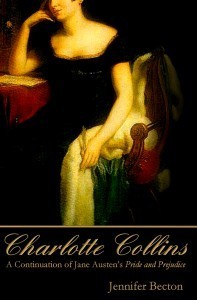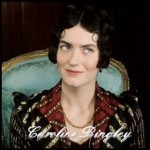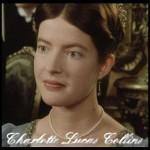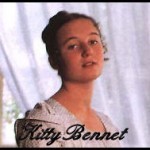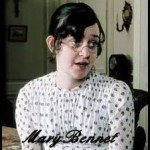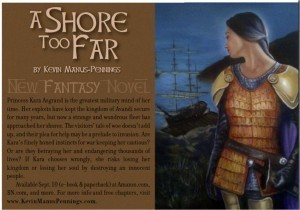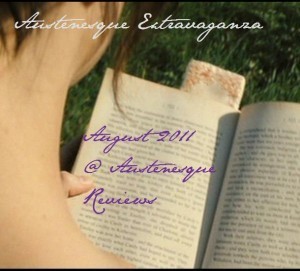Jennifer Becton's Blog, page 51
September 15, 2011
Caroline Bingley: Chapter 1
September 14, 2011
Get Ready
 Caroline Bingley is in the house!
Caroline Bingley is in the house!
I do not have any firm dates yet, but I've got special plans for the release, including a Super Secret Ebook Sale here on the blog. DO NOT tell anyone, but I'll have some new items and they'll be available here before anywhere else just for you guys.
Also coming up, we have the honor of hosting Marilyn Brant, author of According To Jane
and the forthcoming A Summer In Europe She'll be here to talk about her self-published title Double Dipping
She'll be here to talk about her self-published title Double Dipping . I'm told there will also be ice cream recipes and a prize pack. I wish I could win it, but I suppose I'll have to give it away like a good little blog host.
. I'm told there will also be ice cream recipes and a prize pack. I wish I could win it, but I suppose I'll have to give it away like a good little blog host.
In the meantime, I'll be working hard in the background, so if my blog is a little slow, remember, its for a good reason.
September 12, 2011
What Austen Did Best
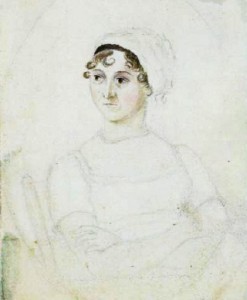 Kevin's blog post below about J. R. R. Tolkien referred to what he did better than anyone else: world building. He created a land that felt large and ancient and alive. This artistic skill, along with many others, has made Tolkien's work endure and flourish. And it caused me to ponder the same question about my literary idol: Jane Austen.
Kevin's blog post below about J. R. R. Tolkien referred to what he did better than anyone else: world building. He created a land that felt large and ancient and alive. This artistic skill, along with many others, has made Tolkien's work endure and flourish. And it caused me to ponder the same question about my literary idol: Jane Austen.
What did Jane Austen do better than anyone else? What has made her work as relevant today as it was 200 years ago?
I think Jane Austen was a master at character creation. She didn't take herself so seriously that she devolved into unnecessary pathos or drama with her creations. Her characters were real then, and as such, they remain believable today. I've met Mrs. and Mr. Bennet. I've seen Darcys and Willoughbys. Charlotte and Caroline could be my neighbors. They are ordinary people without ridiculous traits or exaggerated flaws, and Austen still perceived their value as literary characters.
Through them, Jane Austen showed us the largeness of a woman's heart even though she was confined within the small world of her family, close friends, and home. She saw the drama of the smaller details and the value of a happy ending. What may at first appear to be a nice little love story is more of a fight for survival of both the woman herself and of her spirit.
What do you think Austen did best?
September 7, 2011
Kevin Manus-Pennings Skids in Sideways
Please welcome Kevin Manus-Pennings to Skidding in Sideways. Kevin is my friend and writing mentor. When I graduated from college and got a job as a proofreader and general publishing flunky, I confessed my desire to write a novel one day, and Kevin, who was a real editor, began sending me daily writing tips. He made me realize there was a bit of science to the art of writing. His new book A Shore Too Far (Daughters of Damendine) was released just this week, so if you love fantasy novels, please check it out.
was released just this week, so if you love fantasy novels, please check it out.
The Inheritance of Genius
I think most of my friends would tell you that they knew that I would eventually write a novel. In fact, I think most would mention that they're surprised it took this long. Those childhood friends in Southeast Georgia would remind you that my father was a speed reader who would go to the library with a Xerox box and fill it from whole sections of the library only to return them all read by the end of the week. My father, they would say, loved to talk about stories in the sense of what it meant to make tough decisions, moral decisions, what it meant to make THE right decision.
My childhood friends would point also to my older and younger brothers. The older, who crafted role-playing games around special forces units or espionage, also loved to play fantasy role-playing games, immersing himself in the adventure of the moment. The younger brother read fantasy and science fiction and shaped whole worlds for his own games. All three of us, our friends would say, had large comic book collections, all of them including the morally challenging Uncanny X-men.
My college friends could add further evidence to the indictment. I took so many classes in English that the head of the department felt she had to call me in and remind me that I wouldn't receive any credit for some of them because of the number I had taken. To my friends' dismay, I enjoyed writing literary criticism papers for class and eventually became the fiction editor for the school's literary journal. Yes, my college friends would say, he was destined to write something.
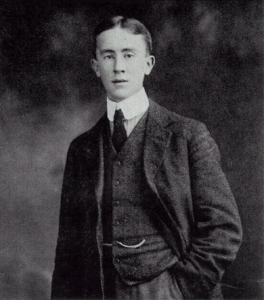
J. R. R. Tolkien in 1911 (Wikimedia Commons)
Despite all these influences, however, it was Tolkien's The Hobbit that set me out the door and to my status today as a novelist (however humble that status may be). When I closed that book in eighth grade, I was conscience of two fundamental realizations. First, The Hobbit did something to me page by page that no other book had ever done. And, perhaps more importantly, those effects had to be the result of specific decisions by the writer, by Tolkien. In other words, literary effect comes from literary choices, strategies, and approaches.
The consequences of these two conclusions are not immediately obvious, but here's the most profound one for my own life, then and now: if literary decisions produce particular effects within a reader, then studying those decisions, identifying them and understanding them, means that they could be reproduced in one's own work. The method's could be borrowed like tools from a neighbor and set to work in one's own projects. From that point on, I began studying every work I encountered to identify how the work affected me and what caused that affect. Like being left an inheritance that is only spelled out in clues, each writer today has a wealth of strategies left him or her by the writers of the past. The hazy arguments about "the muse" or "inspiration" can all be put aside in favor of this arsenal of art if only we spend the time doing an inventory of what we have received.
Tolkien's real genius, and here I mean what his art does better than anyone else's, was world-building, especially in making a world feel large and indescribably old. So now comes the question of how he accomplishes it? Or put another way, what tools has he bequeathed us to achieve that same affect in our readers? I only have partial answers, but more interesting is the question of how many other gems of knowledge line our path that we have not yet learned to see?
September 6, 2011
The Unsellable Sells 5K
Unsellable?
As of sometime this weekend, Charlotte Collins, that unsellable book, sold its 5,000th copy. This number of sales took slightly more than 1 year. And I am thrilled and thankful for all the Austen fans who were willing to try a different sort of sequel.And believe it or not, I am even more thankful for the publisher who rejected the manuscript. If that publisher had been willing to take a chance on Charlotte, I might never have been willing to try self-publishing. I might have become locked into a mindset that would never have allowed me to take the risk of doing things my own way, of writing the books I wanted to read and hoped others would want to read as well. So thank you, publisher.
If I hadn't been rejected, I never would have gotten Absolute Liability out of the drawer and rewritten it for publication. It would have never landed in the Amazon Kindle Top 100 or on the Indie Reader Best Seller's list.
So thank you, readers (I have readers!), for trying my books, and thank you, publisher, for rejecting me and thereby giving me the chance to live my dream and earn a living.
September 1, 2011
Numbers: They've Been Insane
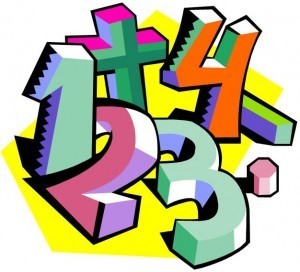
Warning: Math Ahead
Warning: This post contains sales information. If this offends you, please look away. All data is provided in the interest of helping my fellow authors make informed decisions.
I feel a bit vulgar about posting the sales numbers for Absolute Liability, but I promised to share the whole journey, and this is part of it. I'm not bragging. I put the book out and hoped for the best; readers are the ones who are making this happen, and I am beyond grateful.
Before I divulge sales data, I'd like to point you to this post about How to Succeed by J. A. Konrath. I've never been big on the concept of luck. I've always believed that hard work and quality writing would bring success, and they do help a lot, but since Absolute Liability took off, I've had to factor in the fact that I got lucky. No one can predict with certainty which books are going to succeed or fail at a given time in a given market. If people could, publishing companies would not be in the trouble they're in now. They'd only be putting out bestsellers and all writers would be making a fortune.
But that just ain't the way it is.
Luck is involved.
Below is the sales data by week for Absolute Liability with commentary. This includes all sales (BN nook, SW, Kindle, and paperback), but the ranks listed will be for Kindle, which makes up the vast majority of my sales.
July 1-3: 36 (a respectable first three days on the market with zero publicity)
July 4-10: 63
July 11-17: 428 (July 15 was the beginning of launch, including big promotions. The book hit 430 in the Kindle store. I thought this would be the peak.)
July 18-24: 706 (Rank slipped back to around 1,000 and then started to improve.)
July 25-31: 819
August 1-7: 1086
August 8-14: 1493 (KDP had a meltdown this week, and we suspect that I'm missing about 200 sales.)
August 15-21: 3693 (August 17 the book cracked the top 100.)
August 22-28: 5082 (Strong ranks in the 50s all week.)
August 29-31: 1965
So there you go. Now you know what it took last month to crack the top 100 in the Kindle store. It took a buttload of sales. At this moment, there are 22 independently published novels in the Amazon Kindle top 100, 19 of which are priced at $0.99. One of the non-.99-centers is the second book in an indie series, one is a rerelease of a known author's backlist book, and one is an unpublished novel from a previously published author.
So take that information and do with it what you will. I'm not recommending selling at $.99, but I do like that price point as a part of an overall strategy, whether it's used as a special promotional price or as a loss leader in a series. More about that later.
August 29, 2011
Which Minor Pride & Prejudice Character Are You?
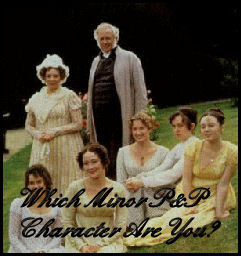 For me, one of the most striking features of Jane Austen's Pride and Prejudice was her use of vivid, interesting secondary characters. While I loved reading about the romance between Lizzie and Darcy and between Jane and Bingley, I was equally fascinated by the characters around them.
For me, one of the most striking features of Jane Austen's Pride and Prejudice was her use of vivid, interesting secondary characters. While I loved reading about the romance between Lizzie and Darcy and between Jane and Bingley, I was equally fascinated by the characters around them.
What happened to Charlotte Lucas? Did she stay married to the odious Mr. Collins? And why was Caroline Bingley such a nasty piece of work? Did she ever learn from her mistakes and take a better path? I wanted to know what became of the minor characters that Austen created.
And now I want to know, which minor Pride and Prejudice character do you most resemble?
Use the widget below to find out, or see the full quiz, including art and badges that you can post on your own blog, here.
Quizzes by Quibblo.com | SnapApp Quiz Apps

Next on the Blog
Kevin Will Blog Here September 8
Lots going on in the coming weeks here at Skidding in Sideways.Tomorrow, I'll be participating in the Austenesque Extravaganza with a personality quiz. Come back to find out which minor Pride and Prejudice character you most resemble.
At the end of the month, I'll be posting my sales numbers for my writer friends. I've really been hemming and hawing about doing this because, at first, I felt vulgar about it. I don't want anyone to think I'm bragging. But then I read a shocking article about publishing contracts that included ebook royalty rates paid to authors, and what I saw there was a gross injustice. In the quest to get published, writers have been giving their work away. Almost literally. I wondered how such a travesty could occur, and then I realized it was because hardly anyone shares numbers in this industry. No one knows what anyone else is selling or earning. There's nothing to compare your offer to, so how is anyone supposed to know what is a good deal and what is essentially getting the shaft? Well, I'm going to tell you exactly how many sales it took to ascend to the Kindle Top 100 Best Sellers list.
Also, my friend and writing mentor, Kevin Manus-Pennings is releasing his first novel A Shore Too Far on September 7, and he'll be guest posting here on September 8. That's his book cover above. Isn't it fantastic? I'm very excited to see my friends taking advantage of this new opportunity in publishing, and I'm going to be first in line to buy his book on Kindle.
August 28, 2011
Update on Calvin
This weekend, the sad story of Calvin's death made Drudge Report. Here is the local news report that it linked:
Here is the full article.
Calvin's owner Laura has set up a Facebook page–Justice for Calvin–in order to reach out to the community for information. There is also a Paypal account set up for donations to aid in finding those responsible for Calvin's death. If you would like to contribute, please use this email address to do so.
Thanks for caring about Calvin and Laura.
August 26, 2011
Austenesque Extravaganza Twitter Party: Hurricane Edition
Please join me (@JenniferBecton) and these other amazing Jane Austen sequel writers
Mary Simonsen @MarySimonsen
Lewis Whelchel @lewiswhelchel
Karen M. Cox @KarenMCox1932
Abigail Reynolds @abigailreynolds
for an Austenesque Twitter Party!
Sunday August 28th 4:00 Eastern Standard Time
We'll be talking Austen, books, and probably hurricanes!
Use the hashtag #austenesque to participate. And consider using the application Tweetchat to make it easier.
See ya there!

